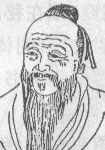乡关头白苦思归
巫峡宁知云雨梦,沧洲欲拭芰荷衣。
花间鹳鹤迎人起,波上鱼龙挟棹飞。
不似南州庾开府,乡关头白苦思归。
乡关头白苦思归。明代。袁凯。吹笛春江烟雾稀,幽芳小草总相依。巫峡宁知云雨梦,沧洲欲拭芰荷衣。花间鹳鹤迎人起,波上鱼龙挟棹飞。不似南州庾开府,乡关头白苦思归。
春江:春天的江。富春江的简称。
烟雾:(名)泛指烟、雾、云、气等:~弥漫|~笼罩大地。
小草:1.草类植物的泛称2.中药远志苗别名。3.指茶叶。4.草稿。5.书法上指草书中形体较小,笔画较简省而不易辨认的字体,相对于大草而言。
相依:相依xiāngyī互相靠对方生存或立足相依为命
云雨:宋玉《高唐赋》叙宋玉对楚襄王问,说楚怀王曾游高唐,梦与巫山神女相会,神女临去说自己“旦为朝云,暮为行雨”,后世因以指男女合欢(多见于旧小说)。
鱼龙:1.鱼龙,比喻品质高下不同的人。2.鱼和龙。泛指鳞介水族。3.指古代百戏杂耍中能变化为鱼和龙的猞猁模型。
不似乡关头思归:想望回故乡。鸟名。即子规,一名杜鹃。
《次杨廉夫先辈韵》是袁凯在明代创作的一首诗词。以下是该诗的中文译文、诗意和赏析:
吹笛春江烟雾稀,
清晨吹奏笛子,春江上的烟雾渐渐散去,
This line describes the scene of a spring morning, with the mist on the river gradually dispersing. The poet sets the atmosphere and creates a sense of tranquility.
幽芳小草总相依。
幽静的芬芳小草相互依偎。
The delicate and fragrant grasses grow together in a secluded place, emphasizing their interdependence and harmony with nature.
巫峡宁知云雨梦,
巫山峡谷间的人们怎能知道云雨中的梦境,
The people in the Wushan Gorge are unaware of the dreams hidden within the clouds and rain,
This line expresses the mysterious and dreamlike nature of the Wushan Gorge, suggesting that the people there may be unaware of the wonders and illusions around them.
沧洲欲拭芰荷衣。
在沧洲,人们想要拭去湿润的芰荷衣裳。
In Cangzhou, people wish to wipe off the wet clothes adorned with water lilies.
This line suggests a desire to remove the traces of a journey or experience, symbolized by the wet clothes, and move forward.
花间鹳鹤迎人起,
在花丛中,鹳鹤起舞迎接人们,
Amidst the flowers, storks and cranes rise to greet people.
This line depicts a lively scene where birds gracefully dance among the flowers, implying a joyous and harmonious atmosphere.
波上鱼龙挟棹飞。
在波浪上,鱼和龙搏击水面,挟带着船桨飞翔。
On the waves, fish and dragons splash and soar with the oars.
This line portrays a dynamic image of fish and dragons playing in the water, symbolizing the vitality and energy of nature.
不似南州庾开府,
与南州的庾开府不同,
Unlike the Yukaifu in Nanzhou,
This line highlights the contrast between the poet's current situation and the renowned poet Yukaifu in Nanzhou. It suggests that the poet's environment lacks the same level of inspiration or support as that enjoyed by Yukaifu.
乡关头白苦思归。
在乡关的头上,我白发苦苦思念着归乡。
At the head of the hometown's pass, I, with white hair, yearn for home.
This line expresses the poet's longing for home and reflects the theme of homesickness and nostalgia.
整首诗词以自然景物为背景,通过描绘春江、花丛、波浪等元素,展现出一幅宁静、和谐、生动的自然画卷。同时,通过对巫峡和沧洲的描写,表达了人们对于未知和梦境的无知,以及对过往经历的回忆和思考。
诗词中还以庾开府为对比,凸显了诗人的寂寞和对于回归家乡的渴望,传达出离乡背井的思乡之情。
袁凯通过细致入微的描写,巧妙地将自然景物与人情思绪相融合,展示了他对自然和人生的独特感悟。整首诗抒发了对自然美的赞美和对人生命运的思考,使读者在阅读中感受到一种深邃而恬静的意境。
袁凯
袁凯,生卒年不详,字景文,号海叟,明初诗人,以《白燕》一诗负盛名,人称袁白燕。松江华亭(今上海市松江县)人,洪武三年(1370)任监察御史,后因事为朱元璋所不满,伪装疯癫,以病免职回家,终“以寿终”。著有《海叟集》4卷。...
袁凯。袁凯,生卒年不详,字景文,号海叟,明初诗人,以《白燕》一诗负盛名,人称袁白燕。松江华亭(今上海市松江县)人,洪武三年(1370)任监察御史,后因事为朱元璋所不满,伪装疯癫,以病免职回家,终“以寿终”。著有《海叟集》4卷。
